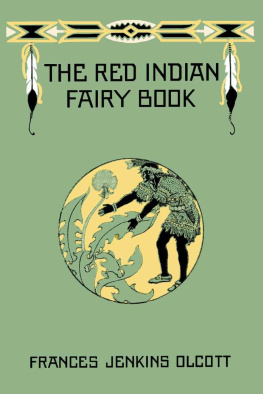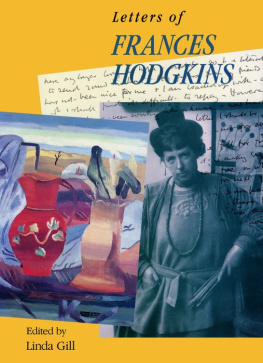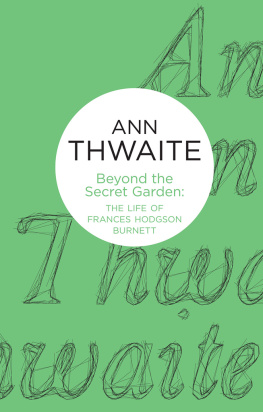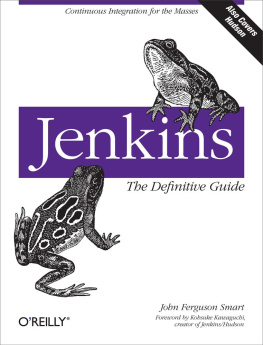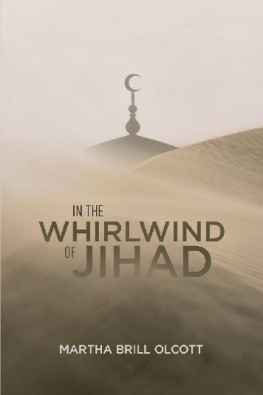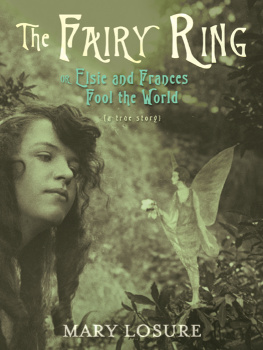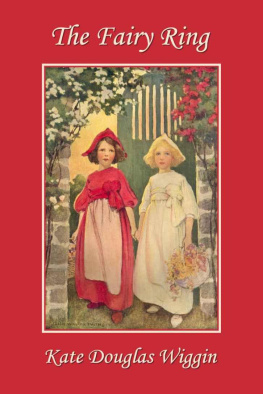Frances Jenkins Olcott - The Red Indian Fairy Book
Here you can read online Frances Jenkins Olcott - The Red Indian Fairy Book full text of the book (entire story) in english for free. Download pdf and epub, get meaning, cover and reviews about this ebook. year: 2006, publisher: Yesterdays Classics, genre: Art. Description of the work, (preface) as well as reviews are available. Best literature library LitArk.com created for fans of good reading and offers a wide selection of genres:
Romance novel
Science fiction
Adventure
Detective
Science
History
Home and family
Prose
Art
Politics
Computer
Non-fiction
Religion
Business
Children
Humor
Choose a favorite category and find really read worthwhile books. Enjoy immersion in the world of imagination, feel the emotions of the characters or learn something new for yourself, make an fascinating discovery.
- Book:The Red Indian Fairy Book
- Author:
- Publisher:Yesterdays Classics
- Genre:
- Year:2006
- Rating:3 / 5
- Favourites:Add to favourites
- Your mark:
- 60
- 1
- 2
- 3
- 4
- 5
The Red Indian Fairy Book: summary, description and annotation
We offer to read an annotation, description, summary or preface (depends on what the author of the book "The Red Indian Fairy Book" wrote himself). If you haven't found the necessary information about the book — write in the comments, we will try to find it.
The Red Indian Fairy Book — read online for free the complete book (whole text) full work
Below is the text of the book, divided by pages. System saving the place of the last page read, allows you to conveniently read the book "The Red Indian Fairy Book" online for free, without having to search again every time where you left off. Put a bookmark, and you can go to the page where you finished reading at any time.
Font size:
Interval:
Bookmark:
All rights reserved. No part of this book may be reproduced or retransmitted in any form or by any means without the written permission of the publisher.
This edition, first published in 2010 by Yesterday's Classics, an imprint of Yesterday's Classics, LLC, is an unabridged republication of the work originally published by Houghton Mifflin Co. in 1917. This title is available in a print edition (ISBN 978-1-59915-120-5).
Yesterday's Classics republishes classic books for children from the golden age of children's literature, the era from 1880 to 1920. Many of our titles are offered in high-quality paperback editions, with text cast in modern easy-to-read type for today's readers. The illustrations from the original volumes are included except in those few cases where the quality of the original images is too low to make their reproduction feasible. Unless specified otherwise, color illustrations in the original volumes are rendered in black and white in our print editions.
Here are sixty-four stories of the Red Men, telling of Magic, Mystery, and Fairies. Most of them are Nature storiespoetic fancies of the Indians about birds, beasts, flowers, and rocks of our American meadows, prairies, and forests. Here also are tales of the Wind, Rainbow, Sun, Moon, and Stars. A few moral stories, tender and simple, like "Little Burnt-Face," are included. Indian customs, and life in the wigwam and forest, are all here.
The tales are arranged according to the Seasons. There are some for early Spring, when the maple sap mounts, and the arbutus blooms under the snow; for later Spring, when the birds nest, and the wild flowers blow; for Summer, with its heat, storms, fishing, and canoeing; for Autumn, with its corn, nuts, Witch-Night, and harvest feast; for Winter, with its ice, snow, and adventures.
In choosing themes for these stories, a large body of folklore of many tribes has been gone over. In retelling, all that is coarse, fierce, and irrational has been eliminated as far as possible, and the moral and fanciful elements retained. The plots have been more closely constructed, and retold in the direct manner interesting to children. The character and spirit of the original stories have been carefully preserved, as may be seen by comparing the elemental tales of the Caddo and Vuntakutchin Indians with the more highly developed, poetic ones of the Algonquin or Iroquois tribes.
The reader may be surprised at the absence of the benign "Great Spirit" who figures in many modern Indian tales. But the truth is, he is not to be found in aboriginal Red Indian mythology. To quote from Mr. Leland's Algonquin Legends, "I do not believe that the idea of a Great Spirit, in the sense in which it is generally used by Indians, or is attributed to them, was ever known till learned from the whites." The Second Annual Report of the Bureau of American Ethnology says, "The 'Great Spirit,' so popularly and poetically known as the god of the Red Man, and the 'Happy Hunting-Ground,' generally reported to be the Indian's idea of a future state, are both of them but their ready conception of the white man's God and Heaven."
Most of these tales have been issued for storytellers, in the columns of the Saturday Magazine of the New York Evening Post . So the stories are not only for the children's own reading, but they form a storehouse of Red Indian Nature myths, suitable for story-telling in homes, schools, and libraries.
April the Month of Spring and Rainbows
May the Month of Flowers and Birds
June the Beautiful Month
July the Hot Month
August the Month of Water and Forests
September the Corn Month
October the Month of Nuts and Witches
November the Month of Fun and Eating
December the Month of Gifts
January the Cold Month
February the Month of the Sky and Rocks
March the Month of the Rabbit and Spring

A N old man was sitting in his lodge, by the side of a frozen stream. It was the end of Winter, the air was not so cold, and his fire was nearly out. He was old and alone. His locks were white with age, and he trembled in every joint. Day after day passed, and he heard nothing but the sound of the storm sweeping before it the new-fallen snow.
One day while his fire was dying, a handsome young man entered the lodge. His cheeks were red, his eyes sparkled. He walked with a quick, light step. His forehead was bound with sweet-grass, and he carried a bunch of fragrant flowers in his hand.
"Ah, my Son," said the old man, "I am happy to see you. Come in. Tell me your adventures, and what strange lands you have seen. I will tell you my wonderful deeds, and what I can perform. You shall do the same, and we will amuse each other."
The old man then drew from a bag a curiously wrought pipe. He filled it with mild tobacco, and handed it to his guest. They each smoked from the pipe, and then began their stories.
"I am Peboan, the Spirit of Winter," said the old man. "I blow my breath, and the streams stand still. The water becomes stiff and hard as clear stone."
"I am Seegwun, the Spirit of Spring," answered the youth. "I breathe, and flowers spring up in the meadows and woods."
"I shake my locks," said the old man, "and the snow covers the land. The leaves fall from the trees, and my breath blows them away. The birds fly to the distant land, and the animals hide themselves from the cold."
"I shake my ringlets," said the young man, "and the warm showers of soft rain fall upon the Earth. The flowers lift their heads from the ground, and the grass grows thick and green. My voice recalls the birds, and they come flying joyfully from the Southland. The warmth of my breath unbinds the streams, and they sing the songs of Summer. Music fills the groves wherever I walk, and all Nature rejoices."
And while they were thus talking, a wonderful change took place. The Sun began to rise. A gentle warmth stole over the place. Peboan, the Spirit of Winter, became silent. His head drooped, and the snow outside the lodge melted away. Seegwun, the Spirit of Spring, grew more radiant, and rose joyfully to his feet. The Robin and the Bluebird began to sing on the top of the lodge. The stream murmured past the door, and the fragrance of opening flowers came softly on the breeze.
The lodge faded away, and Peboan sank down and dissolved into tiny streams of water, that vanished under the brown leaves of the forest.
Thus the Spirit of Winter departed, and where he melted away the Indian children gathered the first blossoms, fragrant and delicately pink,the modest Spring Beauty.
W HEN the World first began in Red Indian Land, Little Dawn Boy dwelt in Red Rock House by the side of a deep caon. And there he lived with his father, his mother, his brothers, his sisters, and a big Medicine Man.
Every morning, when the Sun rose, Little Dawn Boy sat on the edge of the caon, and looked far across to the other side. He saw in the distance a purple mountain and behind it a high, white cliff like a tower, which hid its head in the clouds.
Font size:
Interval:
Bookmark:
Similar books «The Red Indian Fairy Book»
Look at similar books to The Red Indian Fairy Book. We have selected literature similar in name and meaning in the hope of providing readers with more options to find new, interesting, not yet read works.
Discussion, reviews of the book The Red Indian Fairy Book and just readers' own opinions. Leave your comments, write what you think about the work, its meaning or the main characters. Specify what exactly you liked and what you didn't like, and why you think so.

